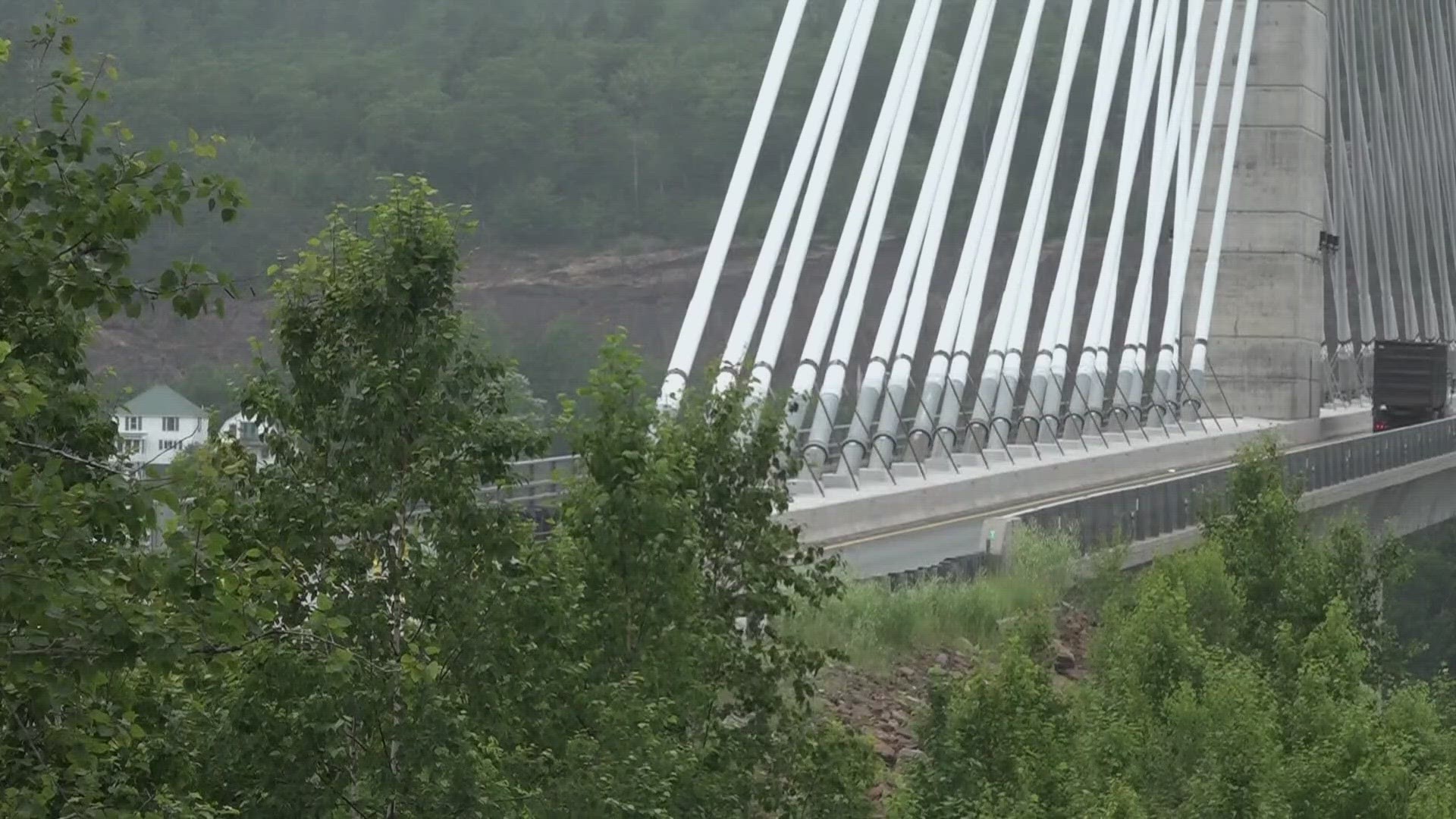PROSPECT, Maine — Since its opening in 2006, the Penobscot Narrows Bridge has attracted thousands of visitors. However, first responders say it's also become a hotspot for attempted suicides.
Waldo County Sheriff's Department and state police say on average, they receive one call a month to the bridge for someone experiencing a mental health crisis.
"We've been able to save some lives, but that one a month is still too much," Troop D Commander and Lieutenant Patrick Hood said.
Now, state leaders are hopeful new legislation passed this year can make this scenic area much safer.
Proposed by Waldo County Senator and Democrat Chip Curry, LD 1120 lines out a plan to install a suicide barrier along the Penobscot Narrows Bridge.
"They're important to us, we want them to survive and we want them to get help," Curry said. "Having just signed, now the next question is how fast can we build it...and that's really the most important question."
Folks at NAMI Maine say oftentimes bridges with notoriety and height, like the golden gate bridge, are more likely to develop into a "hot spot" for suicide attempts.
Senior Clinical Director of Suicide Prevention Greg Marley says that's all the more reason why adding a barrier is key.
"If we have the opportunity to connect with someone, to break their sense of disparity and isolation when they're in that short-term crisis, then people get through it and they live," Marley said.
Currently, the bridge has both posted signs and a phone for folks to call the state suicide hotline—but first responders say it hasn't been enough.
"If it's gone past that point for a phone line for a direct person for help is not the answer, then maybe it is time," Hood said.
The $1.2 million-dollar project will be installed by the Maine Department of Transportation, which is currently designing how the barrier will be built.
After they start, they will also give a progress report every six months until the project is completed.
Currently, there are no legal standards as to when or how barriers are built in Maine, something Marley believes should be the next step.
"With everything that we've learned over the past 30 to 40 years in the effectiveness of barriers, I think it needs to be a part of the design decision-making," Marley added.
If you or a loved one may be having thoughts of taking your own life, just know you are not alone. You can call or text 988 for the Maine Suicide and Crisis Hotline to speak with someone who can help.

